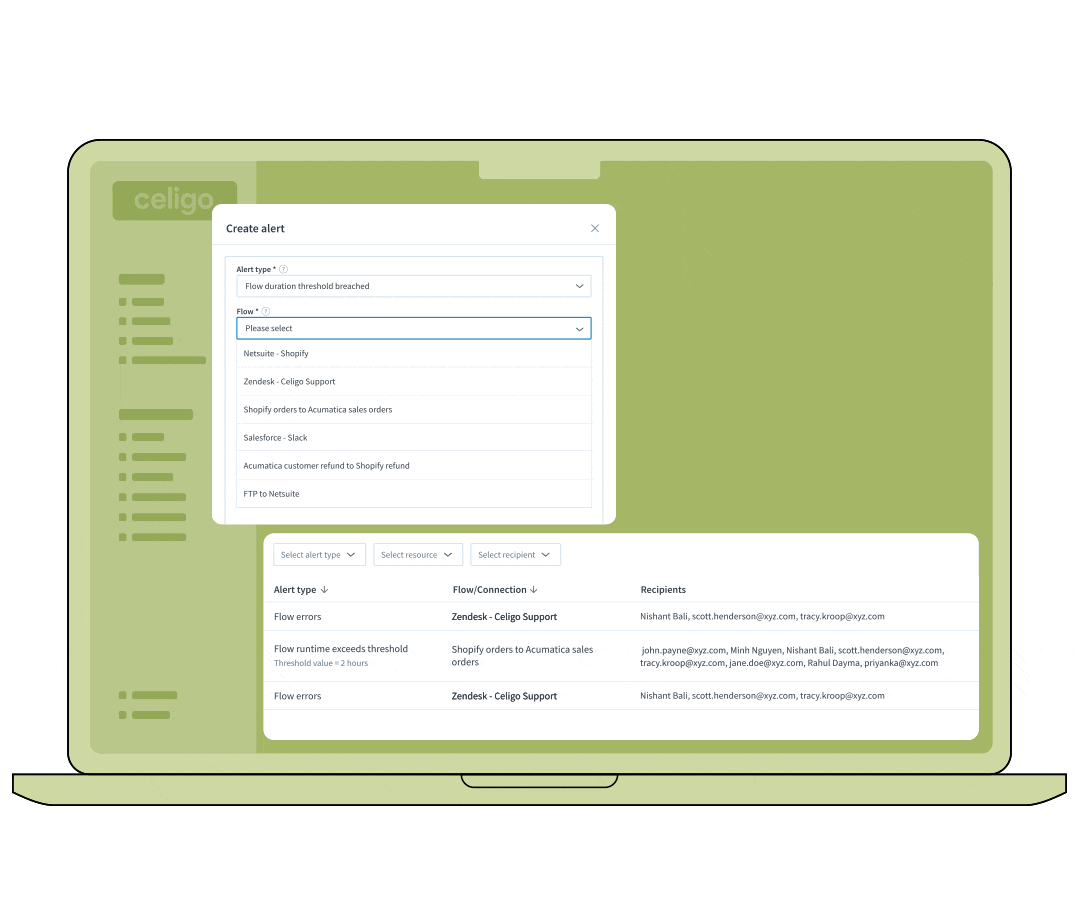Published May 22, 2024
The future of integration: Comparing traditional and advanced iPaaS

- Traditional iPaaS solutions offer developers a platform to accelerate automation.
- Advanced iPaaS empowers business users to build and manage integrations.
- Advanced iPaaS solutions are ideal for scalability and agility.
When iPaaS (Integration Platform as a Service) solutions first came onto the scene, they revolutionized integration by providing powerful capabilities for developers to maximize efficiency and accelerate automation. But now, the business world has changed, and you need more than a developer tool to thrive in the current market.
Today, the average business utilizes 130 applications. Integrating all these systems can be challenging and time-consuming–resulting in never ending integration backlogs. This, coupled with the growing number of digital natives entering the workforce, makes it the perfect time to go beyond the capabilities of traditional iPaaS and empower everyone on your teams to drive automation initiatives.
Compare traditional and advanced iPaaS solutions to find the best fit for your business requirements.
Traditional iPaaS
Traditional iPaaS solutions offer IT teams a platform to accelerate and centralize business process automation. The suite of cloud services provided enable more efficient development, execution, and governance of integration flows. This allows developers to more easily connect processes, services, applications, and data.
This solution significantly reduces the cost of integrations by improving developer productivity. With robust features that boost efficiency, traditional iPaaS solutions accelerate the time-to-value of integration projects. They also provide features to meet corporate and regulatory standards for security and privacy.
The downside of these legacy solutions is they require technical resources to build and maintain integrations. Hiring and retaining these resources can be difficult and expensive. Developer turnover is high, and a study by Zippia found that 70% of developers have been at their job for 2 years or less.
Due to the fact it requires technical resources, this solution can create bottlenecks that limit agility and scalability. This also prevents business teams from getting the visibility they need and can lead to misalignment between business and IT teams.
Benefits
- Improved developer productivity
- Reduced cost of integrations
- Time-to-value
- Meets corporate and regulatory standards for security and privacy
- Easy to modify and add new SaaS solutions
Challenges
- Hiring and retaining technical resources
- Creates IT bottlenecks
- Limited agility and scalability
- Limited collaboration between IT and business teams
Dive deeper into traditional iPaaS solutions.
Advanced iPaaS
Advanced iPaaS solutions go beyond traditional iPaaS by empowering non-technical users to build, manage, and monitor their own integrations. By democratizing integration building, IT is no longer a bottleneck. This also reduces integration backlogs and frees up your developers to focus on digital transformation initiatives.
Advanced iPaaS solutions use AI, prebuilt connectors, and an intuitive user interface to bridge the knowledge gap between technical and non-technical users. Plus, your developers get the robust capabilities they need to manage complex integrations and security and governance.
This solution is ideal for scalability and agility. With no practical limit to the number of applications, flows, or size of data, this solution is ready to grow with you.
Benefits
- Doesn’t require technical resources
- Low total cost of ownership
- Faster time to value than traditional iPaaS
- Enables business users to promote agility and automation
- Optimized efficiency
- Greater scalability
- Increased innovation
Challenges
- Training business users
The key to success in the modern era: iPaaS
While traditional iPaaS platforms provide developers with powerful capabilities that boost efficiency and productivity for your IT teams, there is an overreliance on your technical users to build integrations. This leads to massive backlogs–preventing you from acting quickly based on market trends.
An advanced iPaaS like Celigo gives you the tools you need to empower all your team members to integrate and automate. This leads to increased innovation and agility.
To stay competitive, you need an advanced iPaaS. Contact us today to learn how an iPaaS can revolutionize your business.




